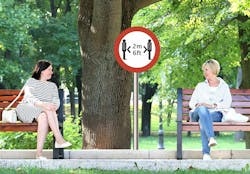Federal COVID-19 physical distancing measures expire, more states reopen
The White House's national physical (social) distancing guidelines—"15 days and 30 days to slow the spread"— have expired, leaving the opening of states now in the hands of governors who are attempting to balance public health guidelines, the realities of testing and mounting economic pressure to reopen communities.
The guidelines, which were not enforced by law, recommended against non-essential travel, shopping trips and social visits. All social gatherings of more than 10 people were also discouraged.
Over the last six weeks of the federal social distancing campaign, more than 30 million Americans have filed for unemployment benefits, after another 3.8 million Americans filed for benefits last week.
The president, who originally wanted the country open by Easter Sunday (April 12), recently said he planned to start traveling again and wanted to return to campaign rallies.
In related news, Los Angeles Mayor Eric Garcetti announced every resident of that city, whether symptomatic or asymptomatic, will be able to receive a free COVID-19 test. Los Angeles has about half of California's total number of 46,500 cases.
According to the tracker maintained by the New York Times, the U.S. now has almost 1,060,000 COVID-19 cases, and about 62,000 deaths.
California trails New York, New Jersey, Massachusetts and Illinois in states with the highest case counts.
Governors across the country have warned that case counts will continue to rise as testing is scaled up to demand. Recently, the National Institutes of Health (NIH) announced a new initiative, the Rapid Acceleration of Diagnostics (RADx), which is a $1.5 billion investment from federal stimulus funding into new testing ideas.
"We need all innovators, from the basement to the boardroom, to come together to advance diagnostic technologies, no matter where they are in development," said NIH Director Francis Collins, MD, PhD, in a press release. "Now is the time for that unmatched American ingenuity to bring the best and most innovative technologies forward to make testing for COVID-19 widely available."
Meanwhile, several states have announced reopening that coincides with the lifting of federal guidelines. Florida Governor Ron DeSantis announced his state will allow restaurants and most retailers to resume business on Monday, May 4, at 25 percent capacity, and that elective surgeries can begin again.
Schools, bars and movie theaters will remain closed for the time being. According to Bloomberg News, DeSantis said the first phase of reopening would exclude the counties of Miami-Dade, Broward and Palm Beach, which are three of the most populous and account for 59 percent of the state's COVID-19 cases.
DeSantis also said that new, strict restrictions concerning Florida's nursing homes have helped curbed the spread of the virus in that state.
A new report in the Washington Post shows that the number of COIVD-19 cases in nursing homes has soared in the last week, and that one in six facilities nationwide have a confirmed case among staff or residents.
While not all states have made nursing home data public, the Washington Post found that in five states —Maryland, Massachusetts, Connecticut, Georgia and New Jersey — the virus has struck the majority of nursing homes. In New Jersey, 80 percent of the state's nursing homes have infections.
Last week, the Centers for Medicare and Medicaid Services mandated all nursing homes report cases of COVID-19 to families, patients and the federal government.

